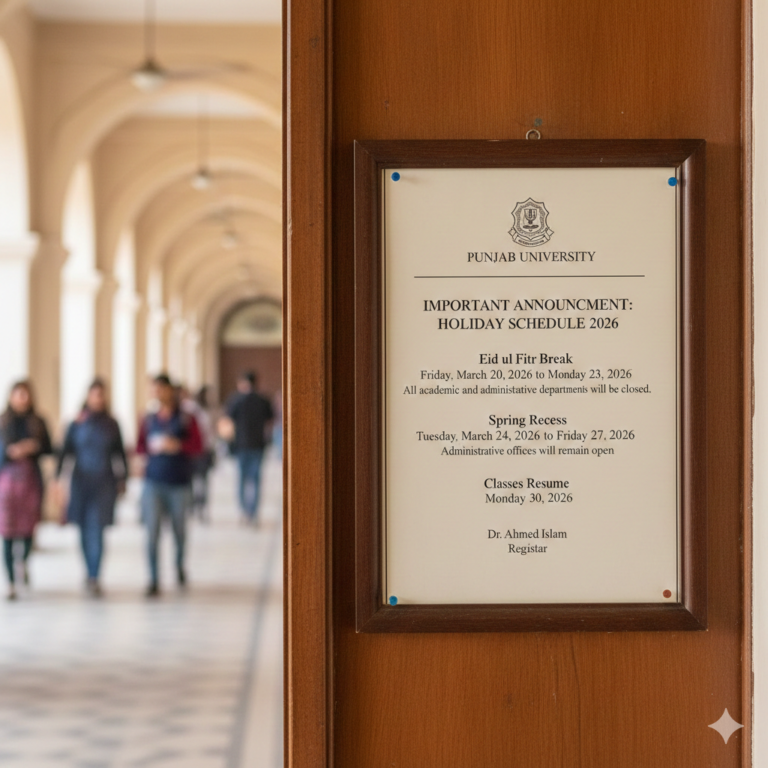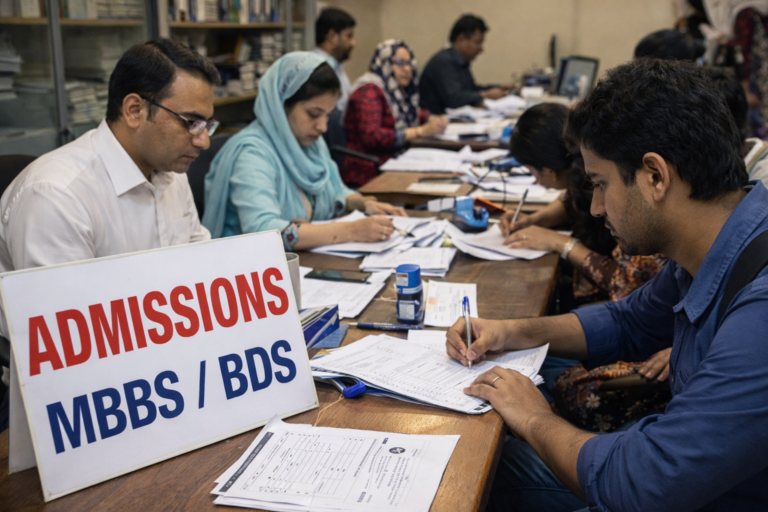
Punjab Announces Reduced Smart Syllabus for Class 9 and 10 Annual Exams
The Punjab government has taken an important step toward easing the academic burden on students by introducing a revised and reduced “smart syllabus” for Class 9 and 10 annual board exams. The announcement was made by Punjab Education Minister Rana Sikandar Hayat, who confirmed that the updated syllabus will be uploaded today on the official websites of all Punjab education boards as well as the School Education Department (SED).
In a statement shared on his official social media accounts, the minister also revealed that the smart syllabus for Class 11 will be released next week, ensuring that all major secondary and intermediate levels are covered under the new reform. This decision has been welcomed by students, teachers, and education experts across the province, as it marks a significant shift in how Punjab’s education system is adapting to modern learning needs.
Purpose Behind the Smart Syllabus
The newly introduced smart syllabus is part of the government’s broader efforts to restructure academic content and make education more student-friendly. According to officials from the Punjab School Education Department, the main goal is to simplify coursework, remove non-essential topics, and focus on core subjects that contribute directly to exam success.
Over the years, students and teachers have raised concerns about the heavy syllabus load and the limited time available for preparation. Many students, especially in government schools, found it challenging to cover the entire curriculum effectively, leading to stress and lower exam performance. The smart syllabus aims to change this by streamlining subjects and allowing students to concentrate on key learning areas without feeling overwhelmed.
Relief for Students and Teachers
The announcement has brought a wave of relief among teachers and students who were waiting for clarity regarding the upcoming academic session. Teachers believe that this move will not only reduce exam stress but also improve the quality of learning by enabling students to understand concepts more deeply instead of memorizing lengthy lessons.
Education experts suggest that when the academic load is balanced, students can perform better and develop critical thinking skills. “This is a positive step towards making our education system more realistic and practical,” said a senior teacher from a government high school in Lahore. “By focusing on essential topics, we can give students more time for revision, concept clarity, and problem-solving practice.”
Comparison with Other Provinces
Punjab’s decision also puts it ahead of several other provinces in terms of academic reform and student support. While other boards, such as those in Sindh and Balochistan, are still relying on traditional curriculums, the Punjab government’s proactive approach shows its commitment to modern education standards.
The concept of a smart or condensed syllabus was first introduced during the COVID-19 pandemic when schools were closed and online learning became the norm. However, while most provinces returned to the full syllabus after schools reopened, Punjab has now institutionalized the idea to make learning more effective and less burdensome.
Digital Access and Transparency
Rana Sikandar Hayat emphasized that the revised syllabus will be accessible online, allowing students from all regions — urban and rural — to download and start their preparation immediately. The move towards digital accessibility reflects the government’s vision to promote technology-based education and ensure transparency in curriculum updates.
Students can visit their respective board websites, including BISE Lahore, BISE Faisalabad, BISE Multan, and others, to download the new syllabus once uploaded. This ensures equal access for all schools under the Punjab Board system, whether public or private.
Focus on Learning Outcomes
The Education Department has clarified that the reduced syllabus does not compromise on learning quality. Instead, it aims to ensure that students master core concepts in each subject while avoiding repetitive or less relevant content. The plan also aligns with Punjab’s ongoing education reforms, which include the introduction of digital assessments, teacher training programs, and curriculum modernization.
Officials have stated that the updated syllabus will also help in better exam evaluation since teachers can now focus more precisely on key learning areas. This will make marking more consistent and transparent, reducing the likelihood of unfair grading or confusion among students.
Reactions from the Education Community
The teaching community has largely praised the initiative, calling it a much-needed step toward aligning Pakistan’s education system with global standards. Teachers have highlighted that students often struggle to balance multiple subjects with extensive content, and the reduced syllabus will allow for more focused preparation.
Parents have also expressed satisfaction, noting that this will reduce stress levels among their children, especially those appearing in board exams for the first time. Many parents believe that an efficient syllabus not only supports academic success but also encourages children to enjoy learning rather than viewing it as a burden.
The introduction of the smart syllabus for Class 9 and 10 marks a turning point in Punjab’s education system. It demonstrates the government’s commitment to improving the quality of education, promoting student well-being, and adopting modern teaching methods. By focusing on core learning, digital access, and reduced academic pressure, Punjab is taking practical steps toward creating a more balanced and efficient education model for future generations.




